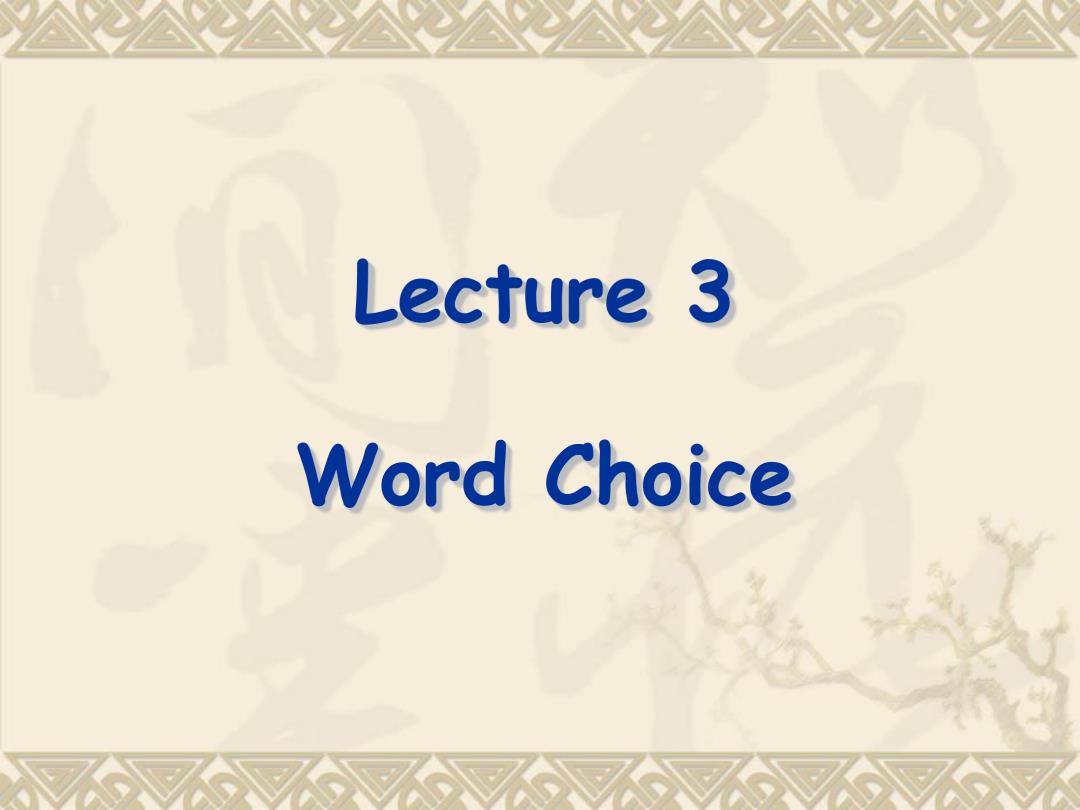
Lecture 3 Word Choice
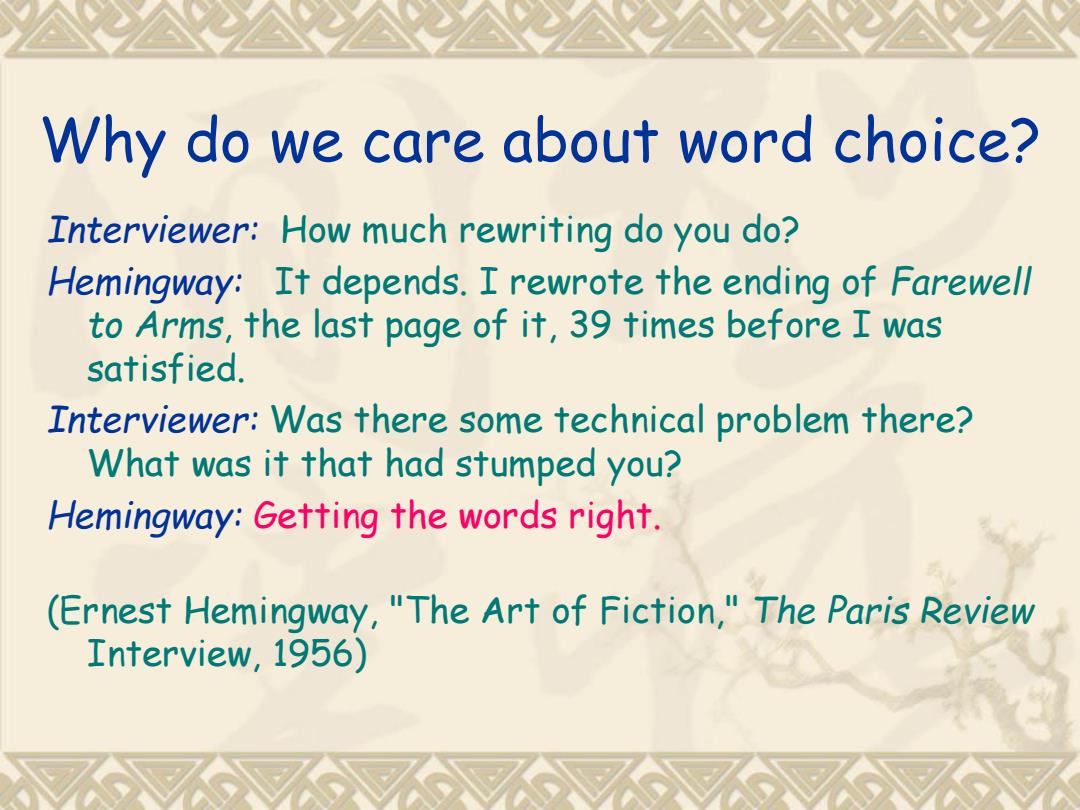
Why do we care about word choice? Interviewer:How much rewriting do you do? Hemingway:It depends.I rewrote the ending of Farewell to Arms,the last page of it,39 times before I was satisfied. Interviewer:Was there some technical problem there? What was it that had stumped you? Hemingway:Getting the words right. (Ernest Hemingway,"The Art of Fiction,"The Paris Review Interview,1956)
Why do we care about word choice? Interviewer: How much rewriting do you do? Hemingway: It depends. I rewrote the ending of Farewell to Arms, the last page of it, 39 times before I was satisfied. Interviewer: Was there some technical problem there? What was it that had stumped you? Hemingway: Getting the words right. (Ernest Hemingway, "The Art of Fiction, " The Paris Review Interview, 1956)
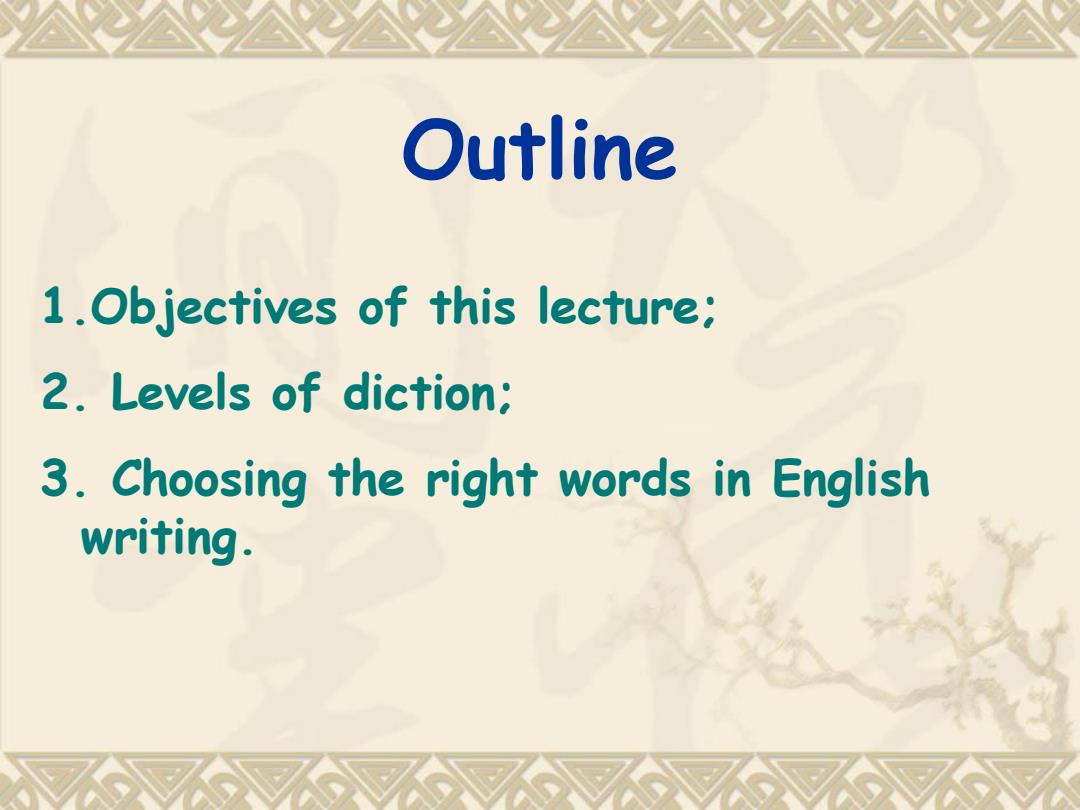
Outline 1.Objectives of this lecture; 2.Levels of diction; 3.Choosing the right words in English writing
Outline 1.Objectives of this lecture; 2. Levels of diction; 3. Choosing the right words in English writing
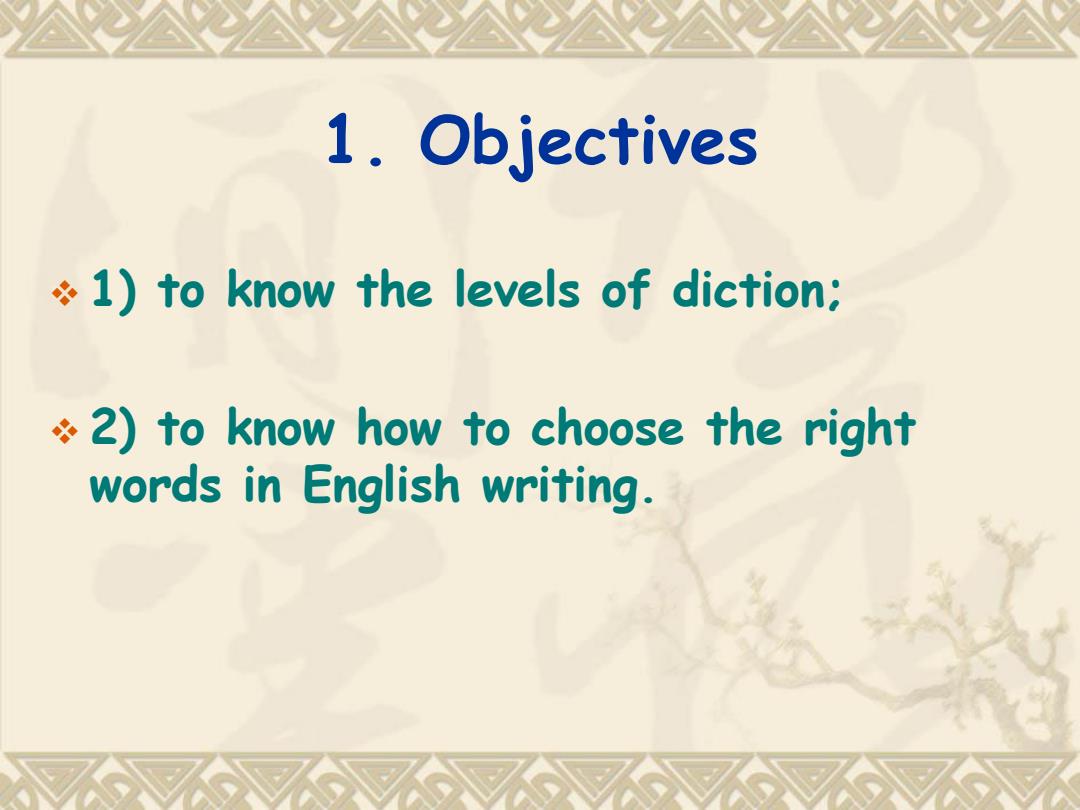
1.Objectives 1)to know the levels of diction; *2)to know how to choose the right words in English writing
1. Objectives v 1) to know the levels of diction; v 2) to know how to choose the right words in English writing
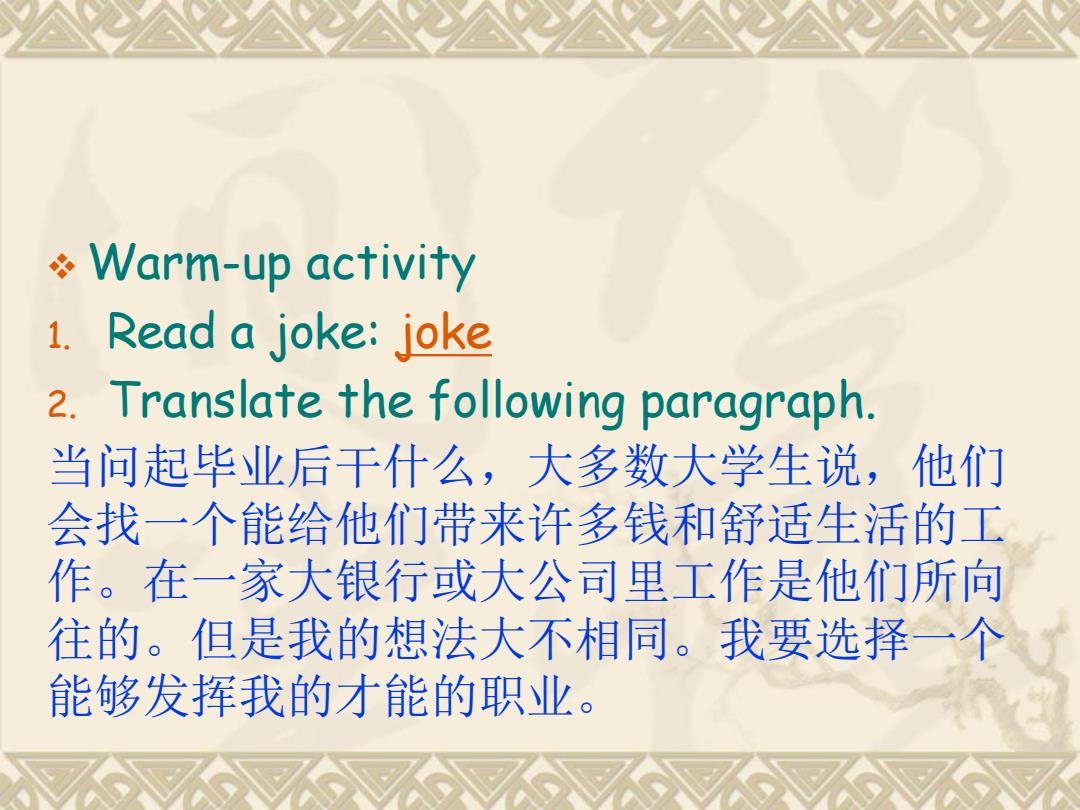
Warm-up activity 1.Read a joke:joke 2.Translate the following paragraph. 当问起毕业后干什么,大多数大学生说,他们 会找一个能给他们带来许多钱和舒适生活的工 作。在一家大银行或大公司里工作是他们所向 往的。但是我的想法大不相同。我要选择一个 能够发挥我的才能的职业
v Warm-up activity 1. Read a joke: joke 2. Translate the following paragraph. 当问起毕业后干什么,大多数大学生说,他们 会找一个能给他们带来许多钱和舒适生活的工 作。在一家大银行或大公司里工作是他们所向 往的。但是我的想法大不相同。我要选择一个 能够发挥我的才能的职业
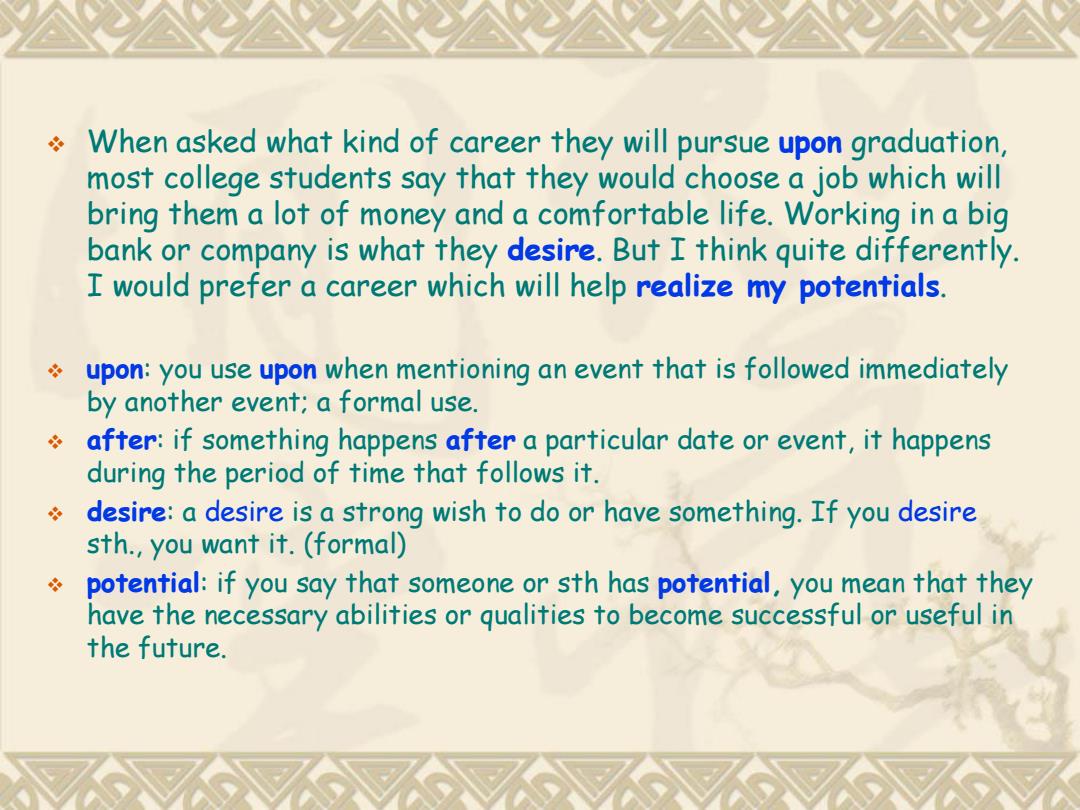
When asked what kind of career they will pursue upon graduation, most college students say that they would choose a job which will bring them a lot of money and a comfortable life.Working in a big bank or company is what they desire.But I think quite differently I would prefer a career which will help realize my potentials. upon:you use upon when mentioning an event that is followed immediately by another event;a formal use. after:if something happens after a particular date or event,it happens during the period of time that follows it. desire:a desire is a strong wish to do or have something.If you desire sth.,you want it.(formal) potential:if you say that someone or sth has potential,you mean that they have the necessary abilities or qualities to become successful or useful in the future
v When asked what kind of career they will pursue upon graduation, most college students say that they would choose a job which will bring them a lot of money and a comfortable life. Working in a big bank or company is what they desire. But I think quite differently. I would prefer a career which will help realize my potentials. v upon: you use upon when mentioning an event that is followed immediately by another event; a formal use. v after: if something happens after a particular date or event, it happens during the period of time that follows it. v desire: a desire is a strong wish to do or have something. If you desire sth., you want it. (formal) v potential: if you say that someone or sth has potential, you mean that they have the necessary abilities or qualities to become successful or useful in the future
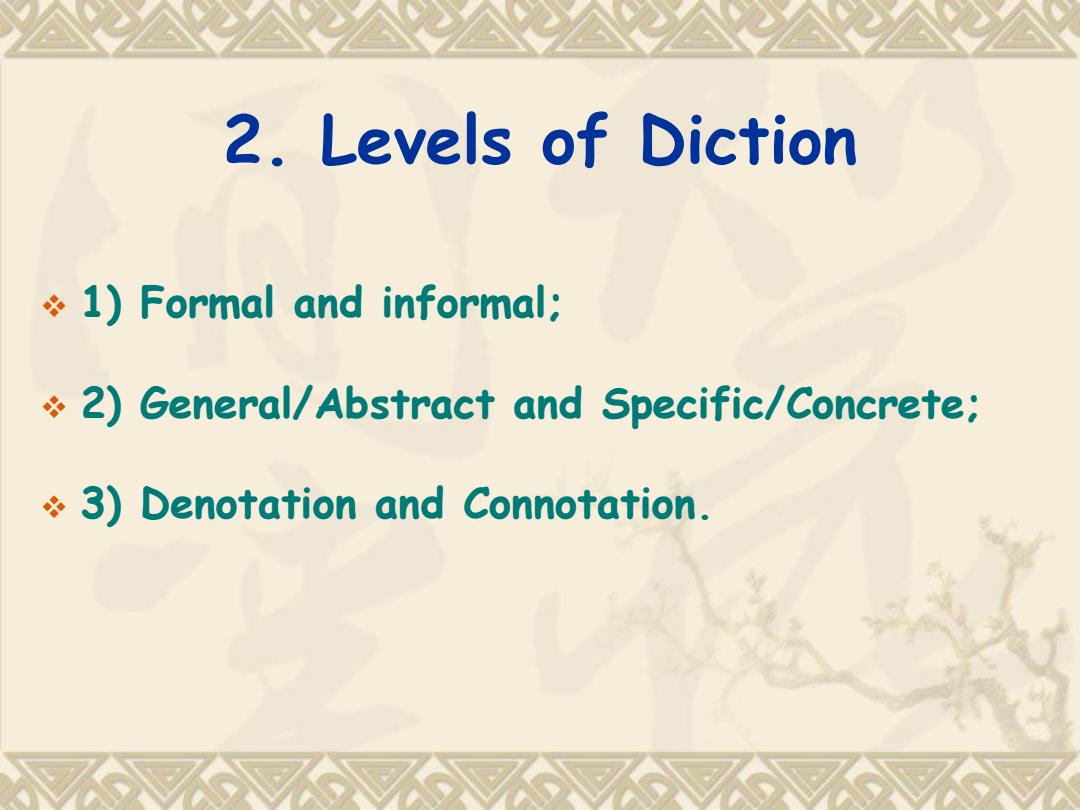
2.Levels of Diction *1)Formal and informal; 2)General/Abstract and Specific/Concrete; 3)Denotation and Connotation
2. Levels of Diction v 1) Formal and informal; v 2) General/Abstract and Specific/Concrete; v 3) Denotation and Connotation
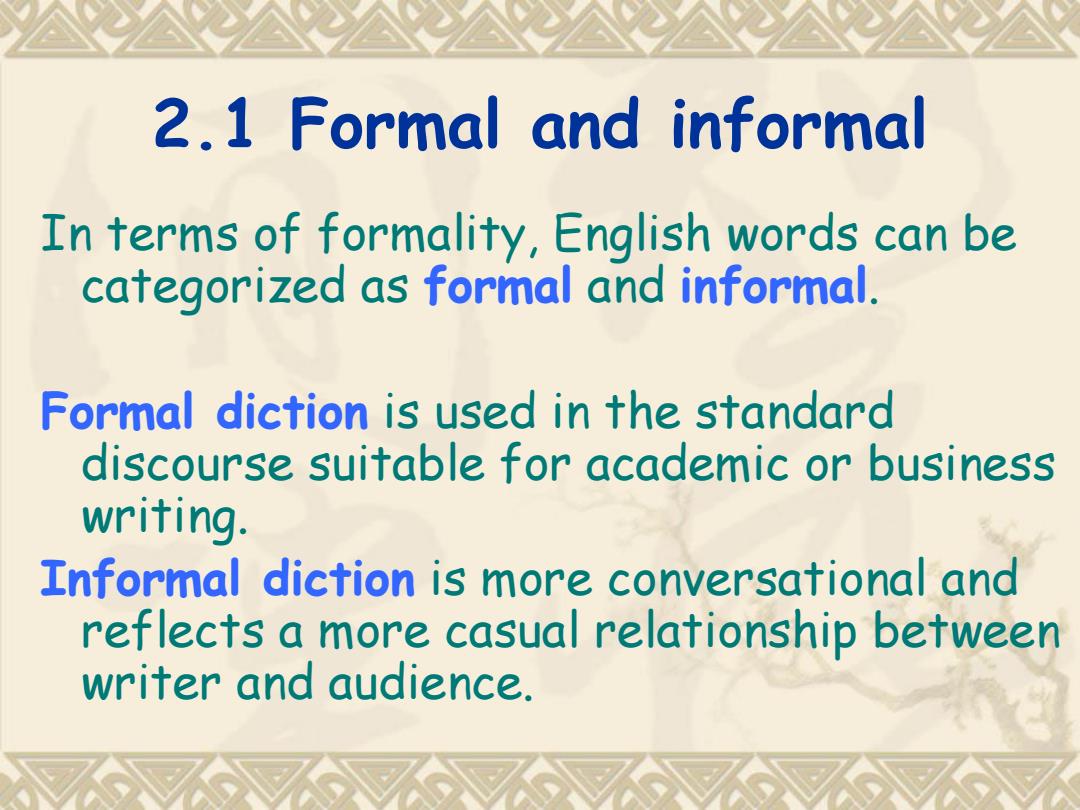
2.1 Formal and informal In terms of formality,English words can be categorized as formal and informal. Formal diction is used in the standard discourse suitable for academic or business writing. Informal diction is more conversational and reflects a more casual relationship between writer and audience
2.1 Formal and informal In terms of formality, English words can be categorized as formal and informal. Formal diction is used in the standard discourse suitable for academic or business writing. Informal diction is more conversational and reflects a more casual relationship between writer and audience
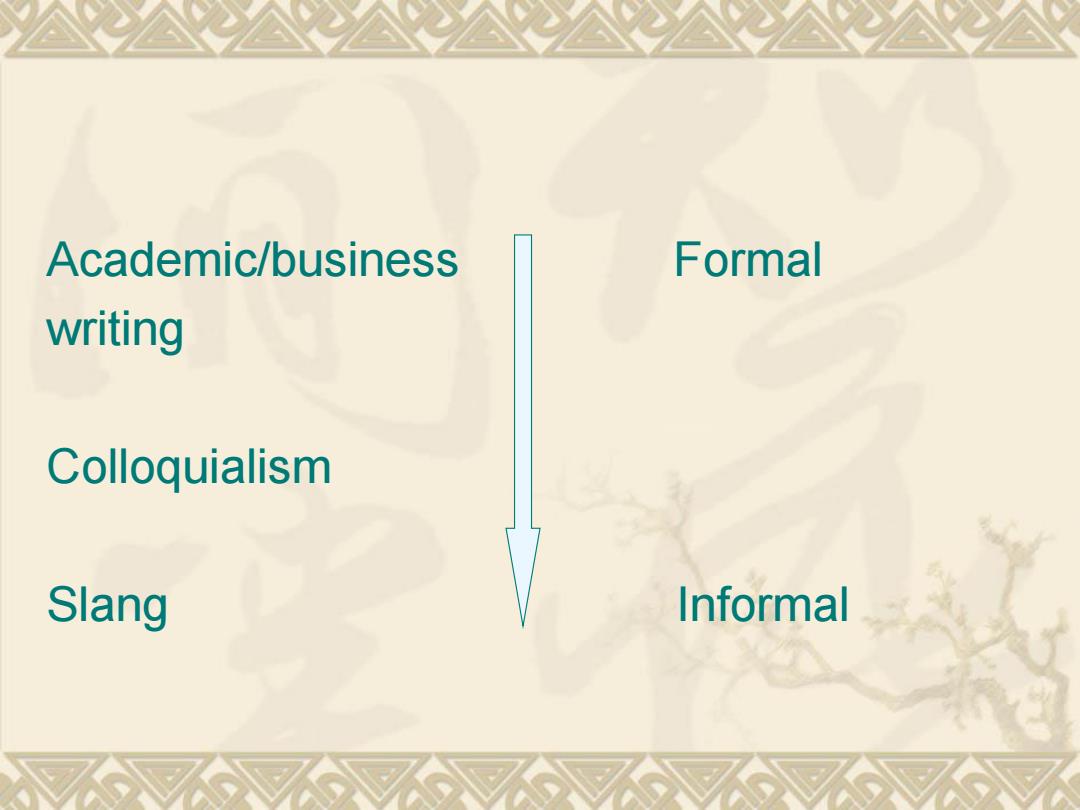
Academic/business Formal writing Colloquialism Slang Informal
Academic/business Formal writing Colloquialism Slang Informal
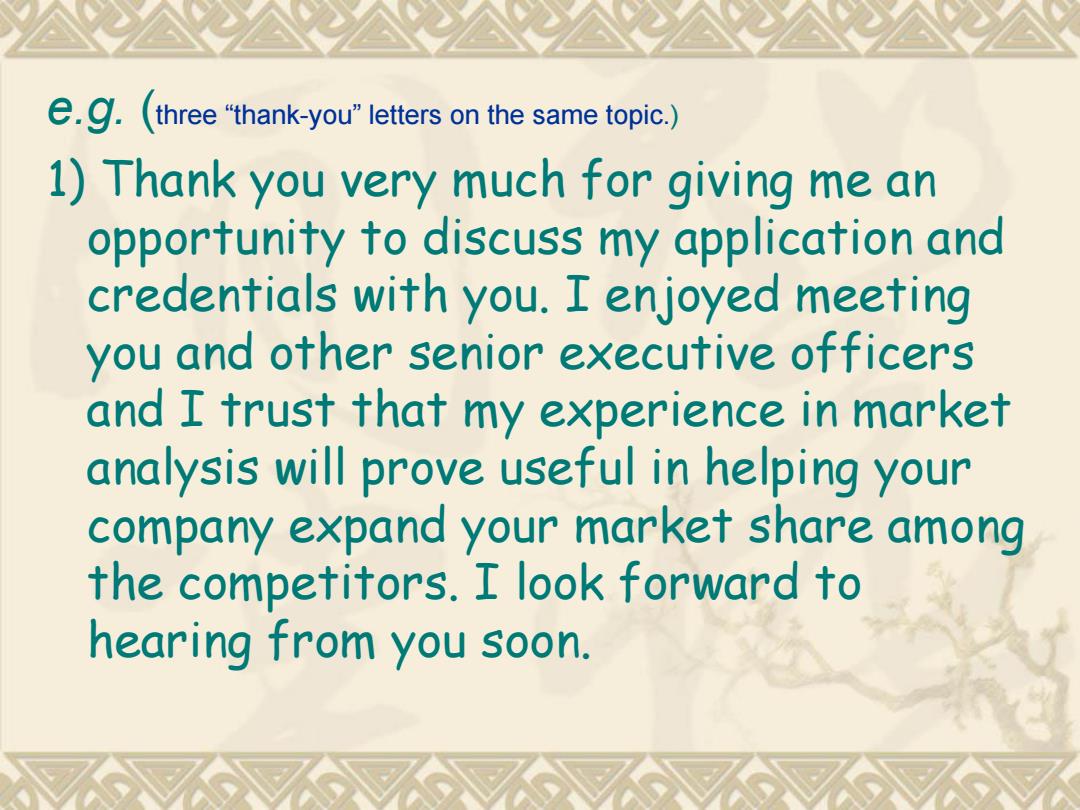
e..three"thank-you"letters on the same topic.) 1)Thank you very much for giving me an opportunity to discuss my application and credentials with you.I enjoyed meeting you and other senior executive officers and I trust that my experience in market analysis will prove useful in helping your company expand your market share among the competitors.I look forward to hearing from you soon
e.g. (three “thank-you” letters on the same topic.) 1) Thank you very much for giving me an opportunity to discuss my application and credentials with you. I enjoyed meeting you and other senior executive officers and I trust that my experience in market analysis will prove useful in helping your company expand your market share among the competitors. I look forward to hearing from you soon